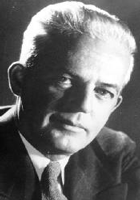 We were in a restaurant in Meridian, Mississippi recently and on the stairs leading to the second floor there were photographs of Mississippi's favorite sons (and daughters). Among them were Walker Percy, the MD turned novelist and his Uncle Will whom Percy often mentions in his essays. Uncle Will (who was really a cousin) raised Walker and his brother after their dad committed suicide and their mother died two years later. Walker had great affection for him.
Seeing Percy's photo on the wall got me thinking about him. I'm a big fan and have a goal to read all his work, both fiction and non-fiction.
We were in a restaurant in Meridian, Mississippi recently and on the stairs leading to the second floor there were photographs of Mississippi's favorite sons (and daughters). Among them were Walker Percy, the MD turned novelist and his Uncle Will whom Percy often mentions in his essays. Uncle Will (who was really a cousin) raised Walker and his brother after their dad committed suicide and their mother died two years later. Walker had great affection for him.
Seeing Percy's photo on the wall got me thinking about him. I'm a big fan and have a goal to read all his work, both fiction and non-fiction.
I recently re-read The Thanatos Syndrome and read, for the first time, Lost in the Cosmos. I'm also randomly sampling selections from a book of his essays which includes two letters he wrote to the New York Times about abortion. The first was the letter describing its evil. The second was a letter referring to the first letter which was ignored. The second was ignored as well. Since Percy was already a renowned author the Times' action illustrated their bias bigtime. Well, who is surprised at that from the biased gray lady? Even decades ago when Percy was writing, the paper had editorial content from page A1 to its end.
 |
| Walker Percy's "Uncle Will" was actually his dad's first cousin. |
"The peculiar predicament of the present-day self surely came to pass as a consequence of the disappointment of the high expectations of the self as it entered the age of science and technology. Dazzled by the overwhelming credentials of science, the beauty and elegance of the scientific method, the triumph of modern medicine over physical ailments, and the technological transformation of the very world itself, the self finds itself in the end disappointed by the failure of science and technique in those very sectors of life which had been its main source of ordinary satisfaction in past ages.
"As John Cheever said, the main emotion of the adult Northeastern American who has had all the advantages of wealth, education, and culture is disappointment.
"Work is disappointing. In spite of all the talk about making work more creative and self-fulfilling, most people hate their jobs, and with good reason. Most work in modern technological societies is intolerably dull and repetitive.
"Marriage and family life are disappointing. Even among defenders of traditional family values, e.g., Christians and Jews, a certain dreariness must be inferred, if only from the average time of TV viewing. Dreary as TV is, it is evidently not as dreary as Mom talking to Dad or the kids talking to either.
"School is disappointing. If science is exciting and art is exhilarating, the schools and universities have achieved the not inconsiderable feat of rendering both dull. As every scientist and poet knows, one discovers both vocations in spite of, not because of, school. It takes years to recover from the stupor of being taught Shakespeare in English Lit and Wheatstone's bridge in Physics.
"Politics is disappointing. Most young people turn their backs on politics, not because of the lack of excitement of politics as it is practiced, but because of the shallowness, venality, and image-making as these are perceived through the media--one of the technology's greatest achievements.
"The churches are disappointing, even for most believers. If Christ brings us new life, it is all the more remarkable that the church, the bearer of this good news, should be among the most dispirited institutions of the age. The alternatives to the institutional churches are even more grossly disappointing, from TV evangelists with their blown-dry hairdos to California cults led by prosperous gurus ignored in India but embraced in La Jolla.
"Social life is disappointing. The very franticness of attempts to reestablish community and festival, by partying, by groups, by club, by touristy Mardi Gras, is the best evidence of the loss of true community and festival and of the loneliness of self, stranded as it is as an unspeakable consciousness in a world from which it perceives itself as somehow estranged, stranded even within its own body, with which it sees no clear connection.
"But there remains the one unquestioned benefit of science: the longer and healthier life made possible by modern medicine, the shorter work-hours made possible by technology, hence what is perceived as the one certain reward of dreary life of home and the marketplace: recreation.
"Recreation and good physical health appear to be the only ambivalent benefits of the technological revolution.”
― Walker Percy, Lost in the Cosmos: The Last Self-Help Book

No comments:
Post a Comment